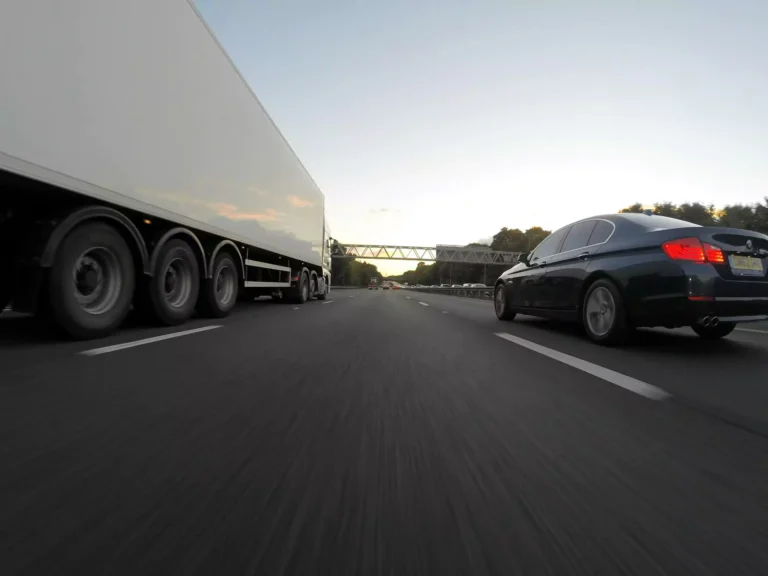Truck Accidents
Truck Accident Lawyers
Commercial vehicles can weigh up to 40 times more than your car, pickup truck, van, or SUV. Semi-trucks and trailers, delivery vans, construction vehicles, and other heavy trucks can damage property, pollute the environment, and, worst of all, injure and kill motorists, pedestrians, and cyclists.
Truck accident lawyers from Garces, Grabler & LeBrocq know how to prove liability after a crash. They have experience dealing with multi-billion dollar insurers and their lawyers. Contact us to discuss your truck accident and the financial compensation you can seek for your injuries.
What You Need to Know About Trucking Laws
Commercial trucks are governed by both state and federal laws. When trucking companies fail to comply with all of these laws, they can create the risk of a truck crash. State trucking laws cover matters such as:
- Issuing, suspending, and revoking commercial driver’s licenses (CDLs)
- Defining the rules of the road for motorists, pedestrians, and cyclists
- Granting oversized and overweight load permits
Federal trucking laws apply to vehicles that weigh at least 10,001 pounds, as well as buses that carry at least nine people, including the driver. Federal jurisdiction also only extends to trucks operating in interstate commerce. This includes commercial vehicles that:
- Start in one state and end in another
- Travel between the U.S. and a foreign nation
- Start and end in the same state but pass through another state or nation
- Carry cargo that originated in another state or nation
The Federal Motor Carrier Safety Administration (FMCSA) enforces U.S. trucking laws. These laws govern issues including:
- Insurance requirements for carriers
- Hours of service for drivers
- Drug and alcohol testing of drivers
- Maintenance and repair of vehicles
- Labeling of hazardous waste
- How carriers and drivers must secure cargo
Importantly, the FMCSA maintains records of carriers’ compliance with trucking regulations and their safety records. If the FMCSA finds that a trucking company has not operated safely, the agency can deny the company’s right to operate in interstate commerce.
How Truck Accidents Differ From Car Accidents
Truck accidents differ from auto accidents involving smaller passenger vehicles in several ways. First, the sheer weight of commercial vehicles can much more easily cause catastrophic or fatal injuries.
Crash energy depends on the mass and speed of the vehicles. When a heavier vehicle strikes you, it transfers greater energy into your body that will break bones, tear soft tissues, and jolt your brain.
Second, the federal government knows how much damage truck accidents can produce. As a result, trucking companies must meet much higher financial responsibility minimums than private vehicle owners.
Trucking companies must carry at least $750,000 in insurance and bonds for non-hazardous cargo and at least $5 million for hazardous materials.
Third, truck crashes happen for many more reasons than car accidents. Truck drivers must worry about high winds, shifting cargo, and blowouts on 18 tires.
Fatigue can take its toll when drivers spend many hours driving each day for many days on end. And the pressure of meeting delivery deadlines can push drivers into speeding and other dangerous driving behaviors.
Common Causes of Truck Accidents
The FMCSA studied the causes of large truck crashes. It found that the truck was coded as causing the crash in 56.7% of truck accidents. Of those in which the truck caused the crash:
- 87% involved a driver error
- 10% resulted from a mechanical failure
- 3% happened due to environmental conditions
There were several common causes of truck crashes identified in the survey.
DRIVER FATIGUE AND HOURS OF SERVICE VIOLATIONS
Driver fatigue caused 13% of crashes in the FMCSA study. Fatigue can dull a driver’s reflexes. Drowsy drivers can even nod off while at the wheel.
The law recognizes the risk of driver fatigue and allows the FMCSA to set the hours of service for drivers. These complicated rules boil down to four guidelines for drivers:
- No driving beyond the 14th hour after coming on duty
- Drivers must take a 10-hour rest after driving 11 hours
- Drivers must take a 30-minute break after eight hours of non-stop driving
- No working more than 60 hours in seven days or 70 hours in eight days
Trucks include electronic logs that automatically record driving and resting times. However, drivers still feel pressure to exceed the hours of service and drive while fatigued.
DISTRACTED DRIVING AND CELL PHONE USAGE
Truck drivers can get distracted by activities inside the vehicle and distractions outside the vehicle. The FMCSA study showed that up to 19% of crashes result from driver inattention, internal distractions, and external distractions. Some common distractions include:
- Eating or drinking
- Adjusting the sound or navigation systems
- Reading documents
- Talking on the radio
A common distraction for truck drivers comes from cell phone use. Smartphones and boredom can tempt truck drivers to talk, text, or even read while driving. Distractions prevent drivers from spotting road or traffic hazards and responding to them.
IMPAIRED DRIVING
Trucking companies must perform drug and alcohol tests on drivers at several points, including:
- Upon hire
- Randomly
- After a crash
- When returning from a drug or alcohol suspension
If a trucking company fails to test its drivers frequently enough, dangerous drivers may reach the roads. Drivers can also evade a diligent testing system by timing when they drink or use drugs. Alcohol and illegal drugs accounted for 3% of crashes in the FMCSA survey.
The survey also revealed the danger of allergy pills, cold medicine, and other over-the-counter drugs. These pharmaceutical products contributed to 17% of crashes, nearly six times as many crashes as alcohol and illegal drugs.
POORLY MAINTAINED VEHICLES AND EQUIPMENT
Trucking companies have a legal duty to maintain their equipment. If they do not do so, the FMCSA can ban the company from using its trucks in interstate commerce. Some common mechanical faults that cause crashes include:
- Brakes
- Wheels and tires
- Steering
- Trailer hitches
- Cargo tie-downs
Trucking companies must inspect their vehicles regularly and perform routine maintenance on a prescribed schedule. Drivers must inspect cargo before every trip to ensure it is secure and the tie-downs are not worn or broken.
SPEEDING AND RECKLESS DRIVING
Speeding is a leading cause of crashes, contributing to 23% of collisions in the FMCSA survey. When truck drivers speed, they increase their risk of losing control of their vehicles or their loads.
Additionally, speeding commercial vehicles require an enormous amount of time and distance to stop. According to one study, a fully loaded semi-truck and trailer at 65 miles per hour requires an additional 209 feet to stop than a car requires.
Finally, speeding increases the crash energy. Logically, a truck traveling 65 miles per hour will cause more damage than the same truck traveling 10 miles per hour.
Reckless driving happens when truck drivers perform risky maneuvers despite knowing the risks they pose. Some common reckless maneuvers include:
- Tailgating
- Cutting off other vehicles
- Disobeying stop signs and traffic lights
- Failing to yield to pedestrians and cyclists
Truck drivers may feel pressure to cut corners while driving to stay on schedule. But these time-saving maneuvers can cause crashes.
Common Truck Accident Injuries
Truck accidents cause the same types of injuries as other automobile collisions. Due to the crash energies involved, these injuries are often more severe. For example, rather than straining your chest muscles, a collision with a semi-truck might fracture your ribs.
In a collision, your body will keep moving in the same direction and at the same speed as before the crash until it hits something. Your seat and seat belt will help restrain you. However, the whipping motion and the impact of your body on the seat belt, steering wheel, dashboard, door, and other structures can injure you.
Several common injuries result from truck accidents.
BROKEN BONES
The skeleton provides your body’s structure. The rigidity of your bones comes from their mineral content. Bone cells create a hollow matrix using calcium, phosphorus, and other minerals. The mineral structure makes bones strong and light.
When your body experiences powerful forces, such as those produced by a truck crash, the bones can fracture.
Doctors repair these injuries by aligning the broken pieces of bone. They may stabilize them using plates and screws before applying a cast. A simple fracture heals in six to eight weeks. Shattered bones, also called comminuted fractures, can take a year or longer to heal.
STRAINS AND SPRAINS
Muscles move your body. They attach to your bones through tendons. Strains happen when your muscles and tendons are hyperextended. The tissues stretch and may even tear. The symptoms of strains include:
- Muscle pain and weakness
- Swelling
- Spasms
- Stiffness
Ligaments hold your skeleton together. Sprains occur when powerful forces stretch and tear the ligaments. Symptoms of sprains include:
- Joint pain
- Inflammation
- Limited range of motion
Mild strains and sprains heal within four to six weeks. Full-thickness tears may require surgical repair and months of physical therapy.
BRAIN INJURIES
Your brain can get injured when you hit your head on the structures inside your vehicle during a truck collision. The whipping forces created in a crash can also injure your brain without head trauma.
In either case, your brain gets jolted hard enough to move inside your skull. If it whips around without hitting your skull, you may suffer a mild injury called a concussion. Concussions rarely cause death.
More severe whipping can tear brain tissue and blood vessels, causing injuries such as diffuse axonal injuries or subdural hematomas. If your brain strikes the inside of your skull, you will develop a bruise called a cerebral contusion. These severe injuries can result in permanent brain damage, coma, and death.
SPINE INJURIES
As your body whips back and forth, you can injure your spine. Common spinal injuries from crashes include:
- Herniated or bulging discs
- Fractured vertebrae
A herniated disc will destabilize your spine, causing back pain. It could also press on nerve roots branching from your spinal cord, causing pain, numbness, and weakness that radiates into your limbs.
SPINAL CORD INJURIES
One of the most catastrophic injuries you can suffer happens when your spinal cord gets severed. When a truck accident severs your spinal cord, you will suffer paralysis, weakness, and loss of sensation below the level of the injury.
Depending on the location of the damage, you may also suffer loss of bladder and bowel control. You may even lose your ability to breathe without a ventilator.
As a result, you will face a lifetime of medical treatment and therapy. You may even need a caretaker to help you perform your daily activities like showering, eating, and dressing.
No Fee Unless
GGL Wins
The Legal Process in Truck Accident Cases
The legal process for truck accident cases will always begin with a claim against the trucking company’s insurers and sureties. Liability insurance is a contract between an insurer and a policyholder. If the policyholder incurs a liability within the scope of the insurance policy, the insurer pays it up to the agreed-upon policy limits.
Surety bonds work similarly to insurance. But the trucking company must repay the surety for any payouts it makes on the trucking company’s behalf. Thus, when a surety pays a $100,000 claim to a crash victim, the trucking company becomes legally liable to pay $100,000 to the surety.
The insurer or surety will assign the case to a claims adjuster. The adjuster’s job is to prevent the insurer or surety from paying unfounded claims. As a result, the adjuster will hold your feet to the fire to prove your claim.
A truck accident lawyer from Garces, Grabler & LeBrocq submits the evidence to support your claim. The adjuster will use this evidence to understand what happened and how it affected you.
Even when you have a clear case for compensation, the claims adjuster may use tactics like delay, deny, and defend. This means the claims adjuster may slow down the processing of your claim, deny coverage, and defend against any lawsuit you file.
Truck crashes can cause massive losses, and the insurer or surety will often try to avoid paying them.
Your lawyer will negotiate with the claims adjuster to settle your claim. They will present evidence and legal arguments to persuade the adjuster that the trucking company was liable and that your losses were the natural consequence of its actions. To do this, the lawyer must prove negligence.
If the case does not settle, you and your attorney must decide whether to file a lawsuit. If you litigate your injury claim, your lawyer will gather evidence and present it to a jury.
Proving Liability and Negligence in Truck Accident Cases
Liability in truck accident cases usually arises due to negligence. Even when the evidence shows the driver might have intentionally crashed, you will still include a negligence claim because insurers and sureties may not cover intentional acts.
To prove negligence, you must show the trucking company failed to exercise reasonable care and, as a result, caused your injuries. You will need evidence of four elements to establish negligence:
- Duty of care
- Breach of duty
- Causation
- Damages
The duty of care comes from the duty owed by all motorists to all other road users. Everyone must avoid taking unreasonable risks that endanger motorists, pedestrians, and cyclists.
The duty of care owed by trucking companies extends even further because their legal duties under state and federal law cover many aspects of the company’s operations.
The breach of duty can include the trucking company’s actions or the driver’s actions. Under the doctrine of vicarious liability, employers are liable for the negligence of their employees. When truck drivers fail to exercise due care while driving, their negligence gets attributed to their employers.
Trucking companies can also act negligently. Some examples of trucking company negligence include failures to exercise due care when:
- Hiring drivers
- Conducting drug and alcohol tests
- Reinstating suspended drivers
- Loading trailers
- Maintaining trucks
- Repairing trucks
Your attorney must also prove that you suffered damages and that the trucking company’s negligence caused them.
Causation means the company’s actions fell within the logical sequence of events that led to your injuries. It also means the company’s actions would foreseeably cause injuries.
Truck Accident Statute of Limitations
All states, including New Jersey, set a time limit for injury claims. This statute of limitations ensures that accident victims bring claims while the evidence is fresh and memories are clear.
New Jersey’s statute of limitations is two years from the date of your crash. You must file a lawsuit before this time expires. If you fail to do so, a judge can dismiss your claim.
Types of Compensation Available for Your Truck Accident
The compensation you can seek after a truck accident will address three areas.
Economic Damages
Economic losses encompass all the financial costs of your injuries. Examples of economic losses include:
- Past and future medical expenses
- Past income losses
- Future diminished earning capacity due to disabilities
- Reasonable and necessary out-of-pocket expenses
You will prove your economic losses using financial records such as credit card statements, receipts, and pay stubs.
Non-Economic Damages
Non-economic losses cover the impact of your injuries on your quality of life. Examples of non-economic losses include:
- Physical pain
- Mental suffering
- Disability
- Dismemberment
- Disfigurement
These losses keep you up at night and interfere with your ability to enjoy life. You cannot quantify these losses. However, the adjuster or jury can infer your losses from the severity of your injuries.
Punitive Damages
Punitive damages are rare. But a jury can award these when the trucking company did something so outrageous that it must be punished. For example, a trucking company could get hit with punitive damages if it continued to operate after the FMCSA suspended the company.
Why Hire GGL?
Garces, Grabler & LeBrocq has been in business for over 30 years. Our New Jersey truck accident lawyers prepare every case as if it will reach trial. As a result, we are never outworked and always prepared when dealing with insurers and sureties in truck crash cases.
We have a long list of positive reviews, and most of our clients come through referrals and repeat business. Contact us online or at 1-800-923-3456 to learn how we can help you after your truck collision.
Related Practice Areas
No Fee Unless
GGL Wins
We've got you covered.
Tell us what happened.
One of our advisers will contact you.

EXCLUSIVE LAW FIRM PARTNER OF RUTGERS
Recent GGL Wins
Truck Accident
34-year-old pedestrian crossing the street was hit by a construction truck, resulting in injuries to his lower back and right knee.
$750 Thousand
Verdict
Truck Accident
Recovery for Newark N.J. truck driver who was instantly killed in a collision with another truck in rural Northeastern, Pennsylvania. This recovery represented the available policy limits after the Commonwealth of Pennsylvania was reimbursed for the post-accident environmental cleanup.
$729 Thousand
Verdict
Truck Accident
24-year-old motorist driving the left lane when a cement truck in the right lane next to her attempted to make left turn resulting in a collision. She sustained injuries to her lower back that required surgery.







